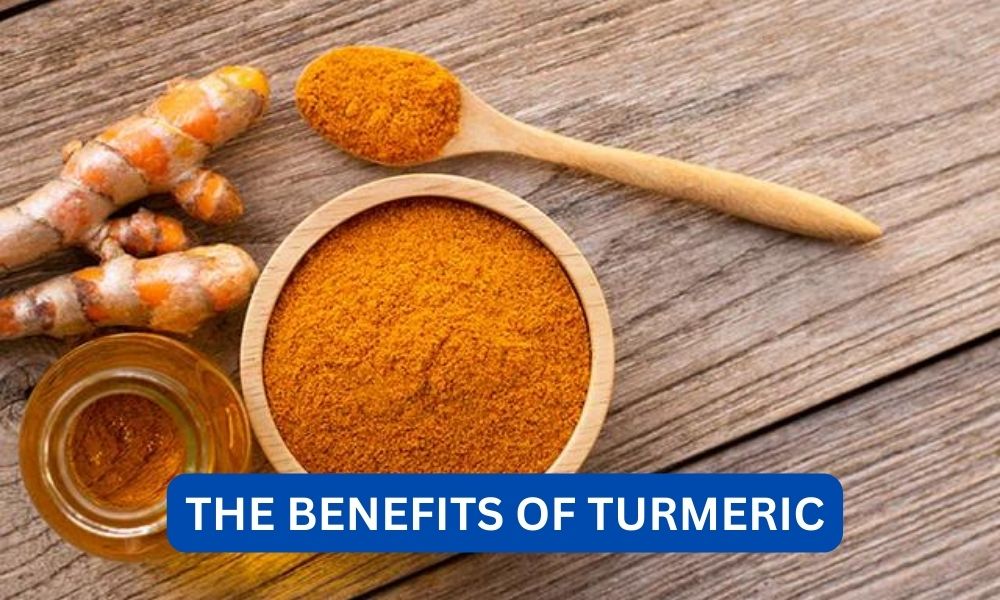Turmeric, also known as the “golden spice”, has been used for centuries in traditional medicine and cooking. It is a bright yellow-orange spice that comes from the turmeric plant, which is native to Southeast Asia and India. In recent years, turmeric has gained popularity in the Western world for its numerous health benefits. From reducing inflammation to improving brain function, turmeric has been hailed as a superfood and has been incorporated into various supplements, drinks, and recipes. In this article, we will delve into the benefits of turmeric and explore why this spice has become a staple in many households.
Contents
What is Turmeric?
Turmeric is a spice that comes from the root of the Curcuma longa plant. It is a member of the ginger family and is commonly used in Indian, Middle Eastern, and Southeast Asian cuisines. The spice is made by grinding the dried root of the turmeric plant into a fine powder. It has a warm, bitter taste and a distinct yellow color, which is why it is often used as a natural food coloring.
Aside from its culinary uses, turmeric has been used in traditional medicine for thousands of years. In Ayurvedic and Chinese medicine, turmeric has been used to treat a variety of ailments, including digestive issues, skin problems, and respiratory conditions. It is also a key ingredient in many traditional remedies for colds, coughs, and sore throats.
Read:What are the benefits of eating papaya?The Active Compound in Turmeric: Curcumin
The main active compound in turmeric is called curcumin. It is responsible for the spice’s vibrant color and most of its health benefits. Curcumin is a powerful antioxidant and anti-inflammatory agent, making it a potent natural remedy for various health conditions.
According to a study published in the Journal of Traditional and Complementary Medicine, curcumin has been found to have anti-inflammatory, anti-cancer, and anti-microbial properties. It has also been shown to have neuroprotective effects, making it a potential treatment for neurological disorders such as Alzheimer’s disease and Parkinson’s disease.
The Benefits of Turmeric
Now that we have a better understanding of what turmeric is and its main active compound, let’s explore the various benefits of this golden spice.
1. Reduces Inflammation
Inflammation is the body’s natural response to injury or infection. While acute inflammation is necessary for healing, chronic inflammation can lead to various health problems, including heart disease, cancer, and autoimmune disorders. Curcumin has been found to be a potent anti-inflammatory agent, which can help reduce chronic inflammation and prevent these health issues.
A study published in the journal Oncogene found that curcumin can inhibit the activity of a protein called NF-kB, which is responsible for activating genes that promote inflammation. By blocking this protein, curcumin can help reduce inflammation and potentially prevent chronic diseases.
Read:What are the benefits of kratom powder?2. Boosts Brain Function
Curcumin has been found to have neuroprotective effects, which means it can protect the brain from damage and degeneration. It has been shown to increase levels of brain-derived neurotrophic factor (BDNF), a protein that promotes the growth of new neurons and helps form new connections in the brain. Low levels of BDNF have been linked to neurological disorders such as depression and Alzheimer’s disease.
In a study published in the Journal of Psychopharmacology, researchers found that participants who took a daily dose of curcumin for 18 months showed improvements in memory and attention compared to those who took a placebo. This suggests that curcumin may have potential as a treatment for age-related cognitive decline and neurodegenerative diseases.
3. Fights Cancer
Curcumin has been found to have anti-cancer properties and has been studied for its potential in preventing and treating various types of cancer. According to a review published in the journal Nutrients, curcumin has been shown to inhibit the growth of cancer cells and induce cell death in laboratory studies. It has also been found to have anti-tumor effects in animal studies.
While more research is needed to determine the effectiveness of curcumin in humans, some studies have shown promising results. For example, a study published in the journal Cancer Prevention Research found that curcumin can reduce the number of precancerous lesions in people with a high risk of developing colon cancer.
Read:What are the benefits of drinking coffee?4. Improves Digestive Health
In traditional medicine, turmeric has been used to treat various digestive issues, including bloating, gas, and stomach pain. This is because curcumin has been found to have anti-inflammatory and anti-spasmodic properties, which can help relieve symptoms of irritable bowel syndrome (IBS) and other digestive disorders.
A study published in the Journal of Alternative and Complementary Medicine found that curcumin can improve symptoms of IBS, such as abdominal pain and bloating, in patients who took it for 8 weeks. Another study published in the journal Clinical Gastroenterology and Hepatology found that curcumin can reduce inflammation in the colon and improve symptoms in patients with ulcerative colitis, a type of inflammatory bowel disease.
5. Promotes Heart Health
Heart disease is the leading cause of death worldwide, and many risk factors, such as high cholesterol and high blood pressure, can increase the risk of developing it. Curcumin has been found to have cardioprotective effects and may help reduce the risk of heart disease.
A study published in the journal Nutrition Research found that curcumin can improve endothelial function, which is the ability of blood vessels to dilate and contract. This is important for maintaining healthy blood pressure and preventing heart disease. Another study published in the journal Nutrition Journal found that curcumin can reduce levels of LDL (bad) cholesterol and triglycerides, which are risk factors for heart disease.
How to Incorporate Turmeric into Your Diet
Now that we know about the various benefits of turmeric, you may be wondering how to incorporate it into your diet. Here are some easy and delicious ways to add turmeric to your meals:
- Add a pinch of turmeric to your scrambled eggs or omelets for a boost of flavor and health benefits.
- Sprinkle turmeric on roasted vegetables, such as cauliflower, carrots, or sweet potatoes.
- Make a turmeric latte by mixing turmeric, milk, and honey. You can also add other spices like cinnamon and ginger for added flavor.
- Use turmeric in marinades for meats or tofu.
- Add turmeric to soups, stews, and curries for a warm and earthy flavor.
Are There Any Side Effects?
Turmeric is generally safe for most people when consumed in food amounts or taken as a supplement. However, some people may experience side effects, such as stomach upset, nausea, or dizziness. It is also important to note that turmeric may interact with certain medications, so it is best to consult with your doctor before taking it if you are on any medication.
The Bottom Line:
Turmeric is a powerful spice with numerous health benefits. From reducing inflammation to improving brain function, this golden spice has been used in traditional medicine for centuries and has gained popularity in the Western world in recent years. By incorporating turmeric into your diet, you can reap its many benefits and improve your overall health and well-being.
Remember to always consult with your doctor before taking any supplements or making significant changes to your diet. While turmeric is generally safe, it is always best to seek professional advice to ensure it is suitable for you.









